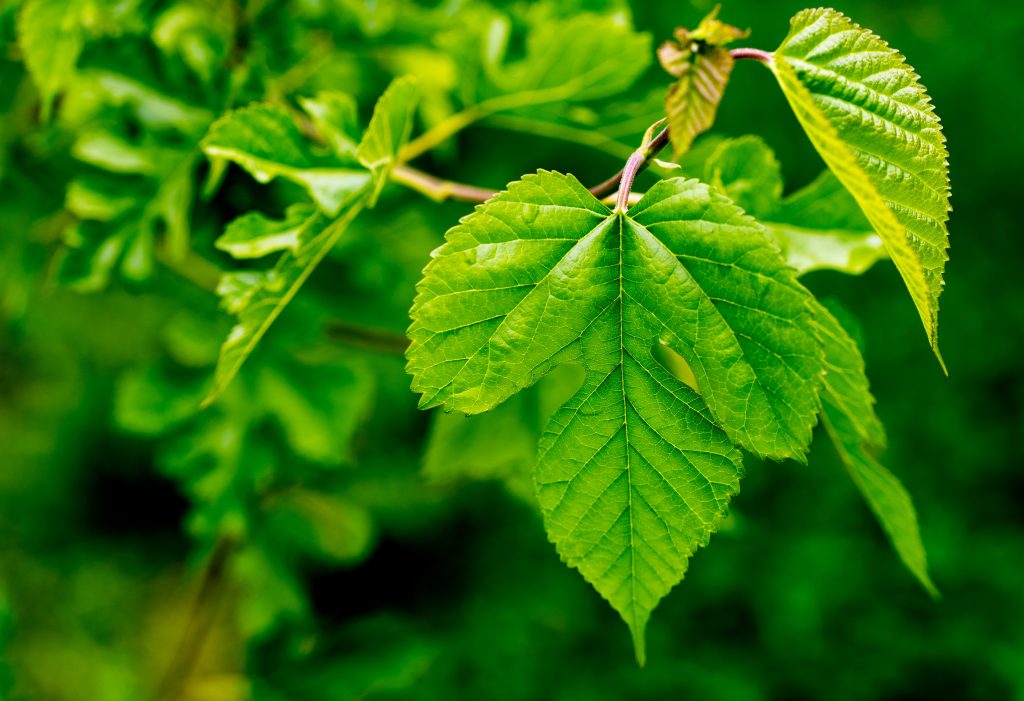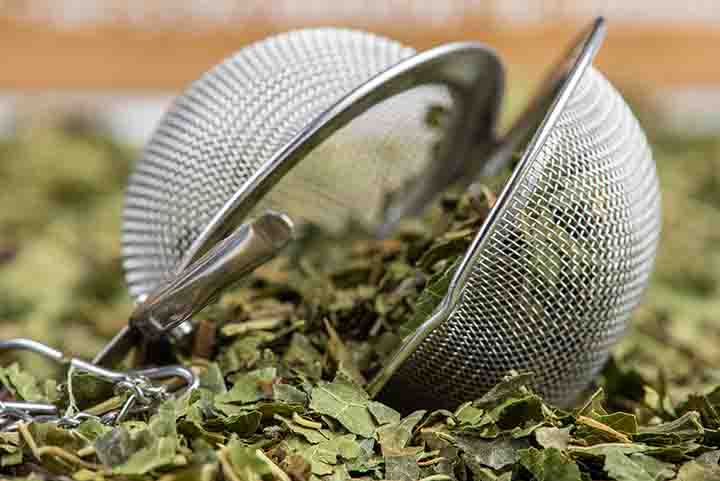Mulberry Leaf

What is Mulberry Leaf?
Mulberry Leaf (sang ye, 桑叶) refers to the dried leaves of the Mulberry tree, which is found throughout China and cultivated across many parts of the world. In China, every part of the Mulberry plant has its unique and diverse therapeutic uses. The berries are bottled as a beverage to enhance immunity and promote good health. The bark is honey-fried to enhance its functions in stopping coughing and wheezing. The leaves are also used as an external wash for eye problems.
Mulberry Leaf is green and spade-shaped, and it is the only food that silkworms feed on. Mulberry Leaf is harvested in Autumn or after the First Frost before being dried for usage in herbal remedies.
In Traditional Chinese Medicine (TCM), Mulberry Leaf falls under the category of ‘Cool/Acrid herbs that release the Exterior’. Such herbs release the Exterior by treating the early stages of diseases that affect the upper respiratory tract, the eyes, the ears, the nose, the throat or the skin.
Cold in nature, Mulberry Leaf helps people who have too much Heat in their body, such as those experiencing Yang Excess or Yin Deficiency, to restore a healthy yin-yang balance. Bitter and sweet, the herb also cleanses the body by clearing Heat, drying Dampness and promoting elimination via urination or bowel movements. Mulberry Leaf can also slow down acute reactions, detoxify the body and has a tonic effect on the body by replenishing qi and blood. In particular, Mulberry Leaf targets the Liver and the Lungs.
Functions and Benefits of Mulberry Leaf
Traditional Chinese Medicine (TCM) shows that Mulberry Leaf includes the following health benefits:
Mulberry Leaf can disperse Exterior pathogens and clear heat to address Warm diseases. For example, it can relieve fever, itching throat, cough, sore throat and the common cold. As the herb can moisten the Lungs while clearing Lung-Heat, Mulberry Leaf is also indicated for Lung-Heat hurting the Lungs, manifested as cough with little yellow and sticky phlegm or dry cough with no sputum.
Also, as Mulberry can remove Liver-Heat and moisten the yin, it can also improve eyesight, relieve blood-shot, painful eyes with profuse tears, pink eyes, dizziness and headache.
Besides this, Mulberry Leaf can also cool blood and stop bleeding caused by Blood-Heat such as hemoptysis, epistaxis and hematemesis.
Modern studies suggest that Mulberry Leaf may reduce the risk of Type 2 Diabetes and prevent cardiovascular diseases. Long-term use of the herb may decrease blood pressure, lower blood sugar levels and insulin, reduce cholesterol and prevent heart attacks.
Containing numerous anti-inflammatory compounds, Mulberry Leaf can combat inflammation and oxidative stress, which then helps to prevent chronic diseases. The use of Mulberry Leaf may also support brain health.
The health benefits of Mulberry Leaf also include its effects on skin. The herb can help to lighten skin tone, promote skin radiance, and reduce pimples.

How to Use Mulberry Leaf
The recommended dosage of Mulberry Leaf is 4.5 – 15g, depending on the exact condition being treated. Some healthcare practitioners recommend slightly lower doses of 5 – 10g when used orally as a powder or decoction.
Whole, dried Mulberry Leaves can be found at some herbal shops and Asian markets. Many nutrition stores also sell Mulberry Leaf extract, powders, pills and capsules.
The best way to consume this herb is to brew it into a tea and combine it with honey. Such Mulberry Leaf Tea benefits include strengthening the herb’s action of moistening the Lungs and relieving cough. If used externally to relieve your eyes, you can decoct Mulberry Leaf with water and wash your eyes with the liquid.

Cautions and Side Effects of Mulberry Leaf
As Mulberry Leaf is cooling in nature, people with cold and weak Lungs, Spleen, or stomach should avoid the herb. The herb is also not suitable for consumption by people with a Qi Deficiency or Yang Deficiency body constitution. If you are pregnant, breastfeeding, or undergoing surgery within 14 days, it is best if you steer clear of Mulberry Leaf for the time being too.
Some of the reported side effects associated with Mulberry Leaf include diarrhoea, nausea, dizziness, bloating and constipation. Also, individuals taking diabetes medications should consult a health professional before trying the herb due to its effects on blood sugar levels.
Summary
Here is a summary for Mulberry Leaf:
- Herb name (Chinese): 桑叶
- Herb name (Pin Yin): sāng yè
- Herb name (English): Mulberry Leaf
- Herb name (Botanical): Folium Mori
- Origin of species: Morus alba L.
- Part(s) of herb used: Leaf
- Geo-specific habitat(s): Most parts of China
- Taste(s) & Properties: Sweet, bitter; Cold; Administrates the Lung and Liver Meridians
- Actions: Eases early symptoms of influenza; Eases dry coughs with yellow oral discharge; Relieve hypertensive-related dizziness and headaches; Eases symptoms of red eyes and blurred vision; Helps to ease bleeding in inflammatory conditions
References
Ma, G., Chai, X., Hou, G., Zhao, F., & Meng, Q. (2022). Phytochemistry, bioactivities and future prospects of mulberry leaves: A review. Food Chemistry, 372, 131335. [Accessed on 30th October 2022]
Park, E., Lee, S. M., eun Lee, J., & Kim, J. H. (2013). Anti-inflammatory activity of mulberry leaf extract through inhibition of NF-κB. Journal of Functional Foods, 5(1), 178-186.[Accessed on 30th October 2022]
Sarkhel, S., Manvi, D., & Ramachandra, C. T. (2020). Nutrition importance and health benefits of mulberry leaf extract: A review. Journal of Pharmacognosy and Phytochemistry, 9(5), 689-695.[Accessed on 30th October 2022]
Share this article on
